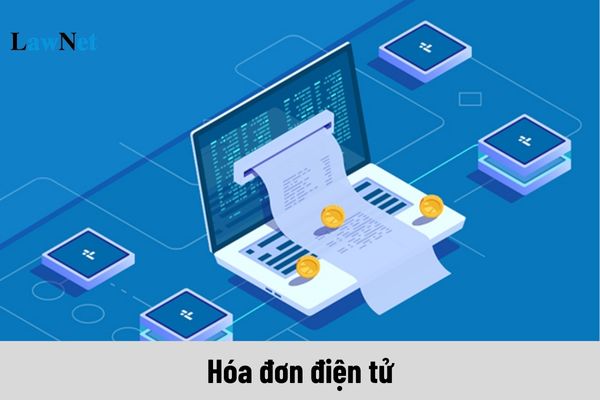What are the requirements for e-invoices granted authentication codes by tax authorities in Vietnam?
What is the definition of authenticated e-invoice in Vietnam?
According to Clause 2, Article 3 of Decree 123/2020/ND-CP, the regulations are as follows:
Definitions
For the purposes of this Decree, the terms used herein shall be construed as follows:
1. “invoice” means an accounting record which is created by a goods seller or service provider to record information about the sale of goods or service provision. Invoices are represented in the electronic form or are printed according to orders placed by tax authorities.
2. “e-invoice” means an invoice, with or without the tax authority’s authentication code, in the form of electronic data, issued by the goods seller or service provider by using electronic instruments to record information on the sale of goods or service provision in accordance with regulations of the Law on accounting and the Law on taxation, including the invoices generated by POS cash registers that are digitally connected to tax authorities. To be specific:
a) “authenticated e-invoice” means an e-invoice that is granted an authentication code by the tax authority before it is sent to the buyer by the goods seller or service provider.
The authentication code on an e-invoice is a unique serial number generated by the tax authority’s system and a series of characters encoded by the tax authority based on the information specified by the seller on the invoice.
b) “unauthenticated e-invoice” means an e-invoice that is sent to the buyer by the goods seller or service provider without the tax authority’s authentication code.
...
Thus, “authenticated e-invoice” means an e-invoice that is granted an authentication code by the tax authority before it is sent to the buyer by the goods seller or service provider.

What are the requirements for e-invoices granted authentication codes by tax authorities in Vietnam? (Image from the Internet)
What are the requirements for e-invoices granted authentication codes by tax authorities in Vietnam?
According to Article 17 of Decree 123/2020/ND-CP, the regulations are as follows:
Issuance of authenticated e-invoices
1. Creation of authenticated e-invoices
a) If enterprises, business entities, other organizations, household or individual businesses prescribed in Clause 1 Article 14 hereof wish to access the web portal of the General Department of Taxation to create invoices, they can use their log-in accounts granted after they complete their registration, following the steps below:
- Create sales and service invoices.
- Append digital signatures to created invoices and send such invoices to the tax authority for its issue of authentication codes.
b) In case of use of authenticated e-invoices through e-invoice service providers, enterprises, business entities, other organizations, household or individual businesses shall access the websites of these e-invoice service providers or use their e-invoice software to:
- Create sales and service invoices.
- Append digital signatures to created invoices and send such invoices through e-invoice service providers to the tax authority for its issue of authentication codes.
2. Issuance of authentication codes to e-invoices
a) E-invoices granted authentication codes by tax authorities must meet the following requirements:
- They must bear adequate contents as prescribed in Article 10 hereof.
- They must follow the format prescribed in Article 12 hereof.
- The information shown on the e-invoices are the same as the registration information as prescribed in Article 15 hereof.
- These e-invoice issuers are not suspended from use of authenticated e-invoices according to the provisions of Clause 1 Article 16 hereof.
b) The authentication code issuing system of the General Department of Taxation automatically issues authentication codes and informs them to senders.
3. Enterprises, business entities, other organizations, household or individual businesses that sell goods or provide services shall be responsible for sending authenticated e-invoices to buyers. E-invoice sending and receiving methods shall be subject to the agreement between the buyer and the seller, and in consistent with regulations of the Law on electronic transactions.
E-invoices granted authentication codes by tax authorities in Vietnam must meet the following requirements:
- They must bear adequate contents as prescribed.
- They must follow the format as prescribed.
- The information shown on the e-invoices are the same as the registration information as prescribed.
- These e-invoice issuers are not suspended from use of authenticated e-invoices as prescribed
What is the form of electronic invoice retention in Vietnam?
According to Article 6 of Decree 123/2020/ND-CP, the regulations are as follows:
Storage and retention of invoices and records
1. Invoices/records must be stored and retained to ensure:
a) Safety, security, integrity, completeness, avoidance of any change or deviation during the retention period;
b) They are stored and retained for a period prescribed in the Law on accounting.
2. E-invoices/electronic records shall be stored and retained by electronic instruments. Authorities, organizations and individuals are entitled to select and apply methods for storage and retention of e-invoices/electronic records in conformity with their specific operations and capacity to apply information technology. They must be printed out or search upon request.
3. Storage and retention of tax authority-ordered printed invoices, externally- or internally-printed records must meet the following requirements:
a) Invoices/records which are not yet issued must be stored and retained in accordance with regulations on storage and retention of valuable papers.
b) Invoices/records issued by accounting units shall be retained in accordance with regulations on storage and retention of accounting vouchers.
c) Invoices/records issued by organizations, households or individuals other than accounting units shall be stored and retained in the same manner as their assets.
Electronic invoices shall be stored and retained by electronic instruments.
Authorities, organizations and individuals are entitled to select and apply methods for storage and retention of e-invoices in conformity with their specific operations and capacity to apply information technology. They must be printed out or searched upon request.

